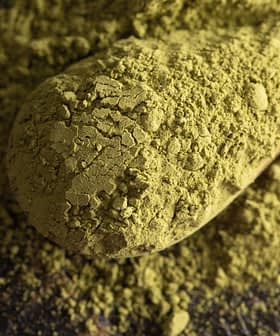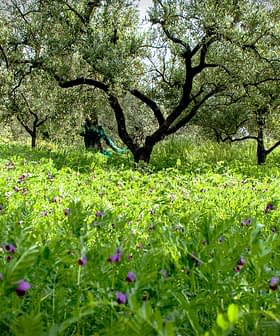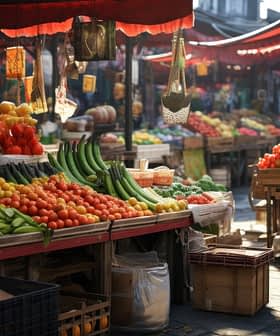Biodiversity Program Succeeds in Restoring Species to Olive Groves
Olive farms following the Olivares Vivos program recorded a 30-percent increase in flora and fauna. The value of their EVOOs is expected to rise too.
A study in Andalusia showed a 30-percent increase in flora and fauna in olive groves following the Olivares Vivos program, which was found to be profitable and environmentally beneficial. The olive groves converted to the program saw an increase in biodiversity and abundance of species, with plans to certify the olive oil produced as environmentally friendly.
The most extensive study ever conducted on olive grove biodiversity has provided promising results in Andalusia.
Scientists from the University of Jaén and Spain’s Higher Council for Scientific Research (CSIC) said that olive farms following the Olivares Vivos program have recorded a 30-percent increase in flora and fauna collected in the groves.
These results endorse that the incorporation of biodiversity in agriculture is an asset that improves the profitability of farmers through their entrepreneurship and the search for added value.
“The LIFE Olivares Vivos program, coordinated by SEO/BirdLife, has shown that this olive growing model works,” the researchers wrote. “It generates a recovery of species and a very significant increase in the abundance of flora and fauna in just three years.”
See Also:Europe Plans to Triple Agricultural Land Dedicated to Organic Farming by 2030“Furthermore, it is profitable: it does not reduce productivity, it saves on fertilizers and phytosanitary products and provides added value to your products,” they added.
In 2016, 40 olive farms in the region were selected, with 20 converted to the Olivares Vivos model and 20 operating normally and serving as a control group.
Native species of trees and other woody plants were planted in the 20 groves that adopted the Olivares Vivo model. The herbaceous cover in the groves was also maintained and unproductive areas of the groves, including gullies, streams and roadsides, were restored.
The researchers also added supporting infrastructure to the plantations, including ponds, drinking troughs, nest boxes and insect nests to facilitate the transition of the groves to a more natural state.
“Once the conversion of these 20 olive groves to the Olivares Vivos model has been completed, an average of about 30 species per olive grove has been incorporated, considering all the groups studied,” said Pedro Rey, a professor of ecology at the University of Jaén and head of the research team working with Olivares Vivos.
“In these olive groves, without considering the woody species introduced by reforestation, the recovery of species exceeded 12 percent and the abundance increased by 70 percent,” he added.
The number of bee, bird and plant species observed in the groves increased between seven and 12 percent, with a 40 percent increase in abundance compared to the groves of the control group. The abundance of pre-existing ant species increased too.
According to the researchers, biodiversity will likely continue to rise in the groves as the native trees and woody plants continue to thrive, creating new habitats.
Along with increasing biodiversity, the value of olive oil produced in the groves converted to the Olivares Vivos model might also see a boost.
“Extra virgin olive oil produced in these live olive groves represents a certified contribution to the conservation of biodiversity,” said José Eugenio Gutiérrez, the SEO/BirdLife delegate in Andalusia and coordinator of the project.
“To transfer the added value of biodiversity to extra virgin olive oils, the Olivares Vivos seal certification scheme is being fine-tuned,” he added. “It will guarantee the consumer that the extra virgin olive oil bearing this seal has been produced in olive groves in which species of flora and fauna have been recovered.”
At the moment, only extra virgin olive oils produced in the 20 experimental groves will be able to use the seal on their products. However, Gutiérrez said that more than 600 growers have expressed interest in adopting the model.
“These results endorse that the incorporation of biodiversity in agriculture is an asset that improves the profitability of farmers through their entrepreneurship and the search for added value, but also a benchmark to improve the implementation of the environmental component of the new agricultural and environmental policies,” SEO/Birdlife executive director Asunción Ruiz concluded.
Share this article









